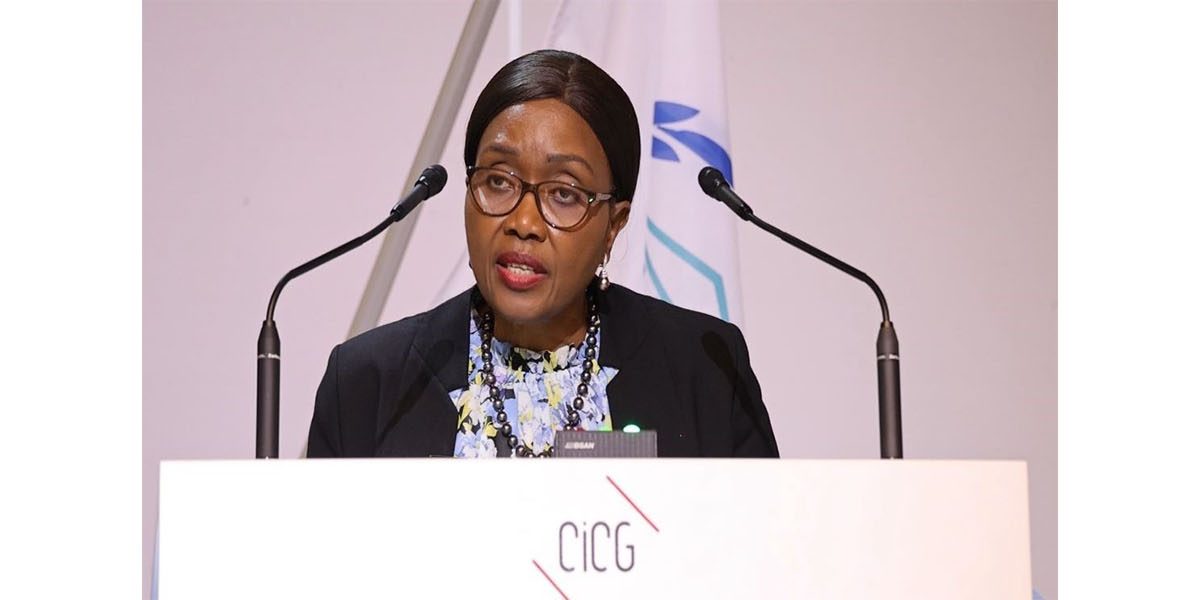Sakeus Iikela
Geneva, Switzerland – Speaker of the National Assembly Hon. Saara Kuugongelwa-Amadhila has called on the international community to recommit to upholding international humanitarian law and protecting civilians in times of conflict.
Speaking during the general debate of the 151st Inter-Parliamentary Union (IPU) Assembly in Geneva, Kuugongelwa-Amadhila said the Geneva Conventions remain a vital framework for limiting the effects of armed conflict and safeguarding civilians, medical workers, journalists, and humanitarian personnel.
She said Namibia’s own experience of a long liberation struggle has shaped the country’s appreciation of the need to maintain humanitarian standards under all circumstances.
Since independence, Namibia has ratified key international instruments, including the Geneva Conventions and their Additional Protocols, the Convention on Cluster Munitions, and the Rome Statute of the International Criminal Court.
These commitments are reflected in domestic laws such as the Geneva Conventions Act of 2003.
Kuugongelwa-Amadhila expressed concern about growing disregard for international law and the erosion of multilateralism, saying unilateral actions by powerful nations undermine the humanitarian framework.
“One of the greatest threats to the effectiveness of the Geneva Conventions is the flagrant disrespect and disregard for international law and international humanitarian law, particularly by some of the most influential members of the United Nations”.
“We are witnessing with concern, a shift from commitment to multilateralism to unilateralism, mainly in pursuit of the interests of individual nations,” she said.
She added: “A good case in point here is the Gaza crisis where international humanitarian organisations could not deliver life-serving aid, including medicines, food, and water to the people of Gaza, not because of the ineffectiveness of international humanitarian law, but because aid was deliberately blocked from entering Gaza, a blatant violation of the principles of the fourth Geneva Convention”.
She also criticised economic sanctions imposed on countries such as Cuba and Venezuela, saying they restrict access to essential services, disrupt development, and harm the livelihoods of affected populations.
The Speaker said reforms to the multilateral system are urgently needed to make it more responsive to current and future challenges, including climate change, which she described as a growing humanitarian threat.
Kuugongelwa-Amadhila noted that women and children remain among the most vulnerable in conflict situations, highlighting the continued rise in sexual violence during armed conflicts. She called for stronger political will and accountability to end impunity for such violations.
“We have a collective duty to fight impunity and hold perpetrators accountable,” she said.
She further emphasised that parliaments play a central role in implementing humanitarian obligations by enacting relevant legislation, ensuring accountability, and overseeing the allocation of resources to address humanitarian needs.
“Ratification alone is insufficient; meaningful implementation is what upholds the spirit of these instruments,” she added.
Kuugongelwa-Amadhila urged all states to recommit to the principles of the Geneva Conventions and called on influential countries to use their power to prevent and end violations of humanitarian law, particularly in the occupied Palestinian territories.
She reaffirmed Namibia’s support for the International Red Cross’s Global Initiative and the UN Secretary-General’s campaign for humanitarian disarmament, stressing that lasting peace can only be achieved through the peaceful settlement of disputes in accordance with the UN Charter.








